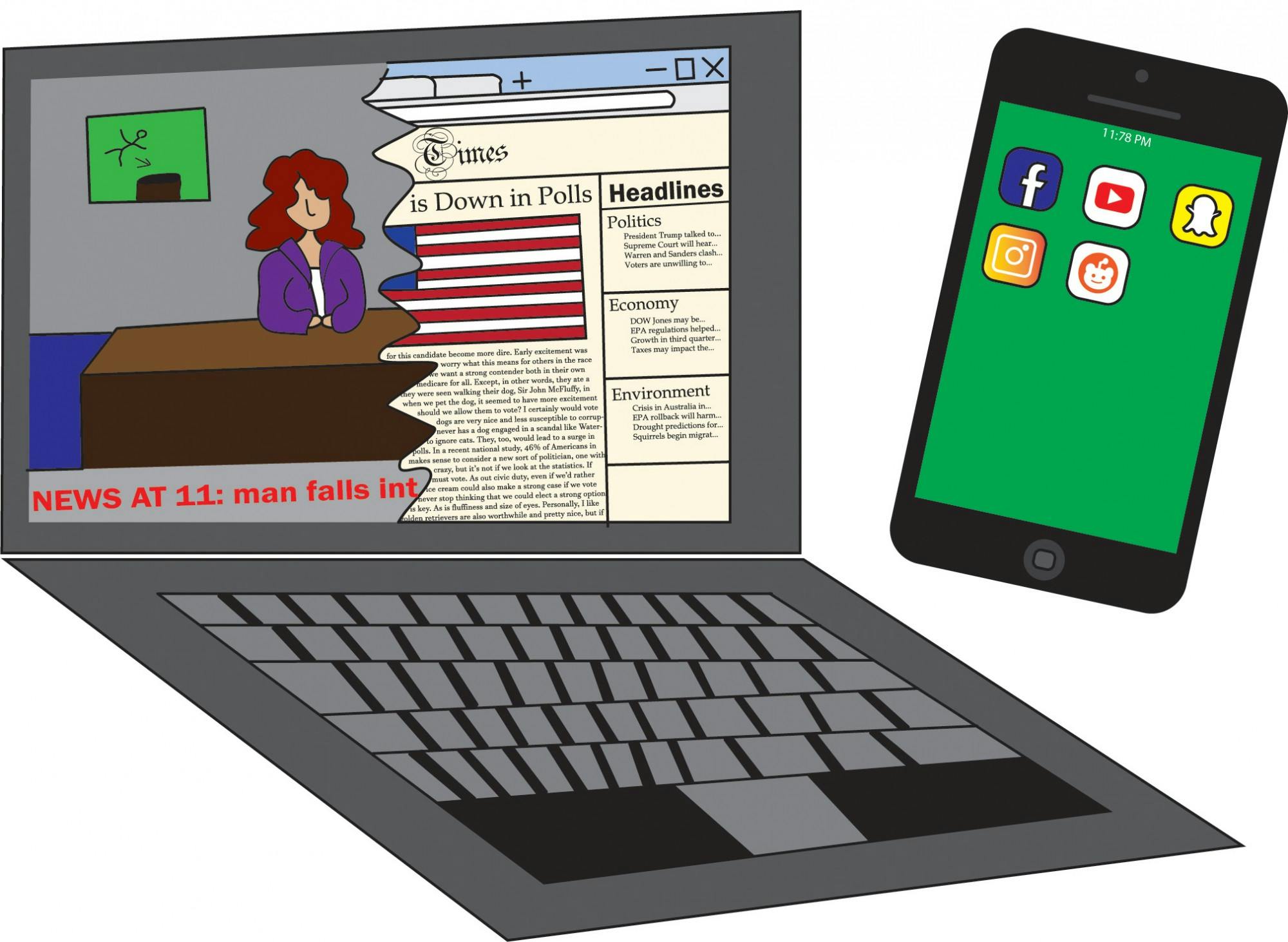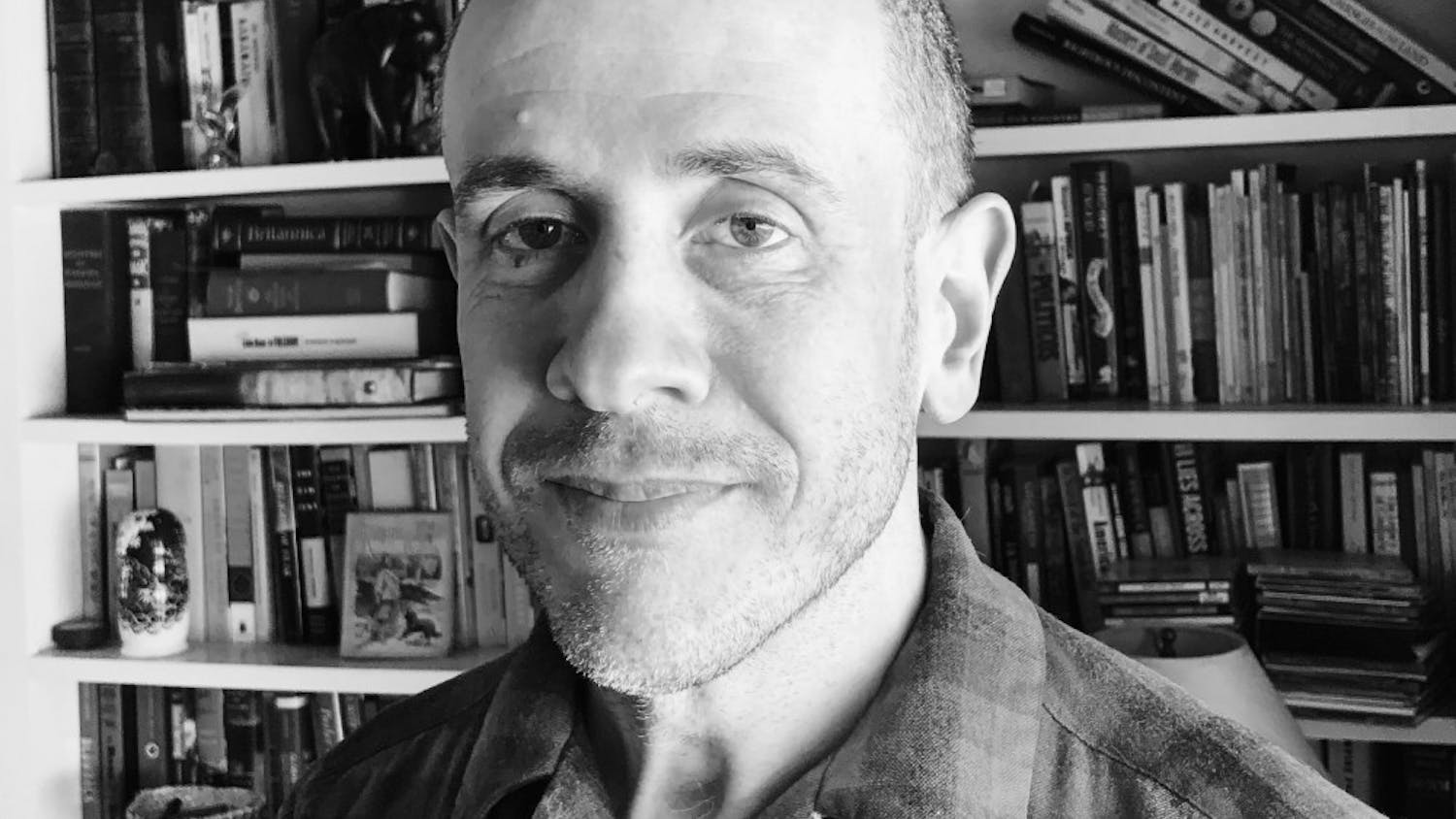In the age of social media, the way young people consume media is changing quickly. In a study done by the Pew Research Center, only 16 percent of American 18-to 29-year-olds said they often get their news from TV. Not surprisingly, 36 percent said they often get their news from social media and 27 percent said they often get their news from news websites.
Although young adults have many platforms to consume news, how informed they actually stay varies. Philip Surendran ’23 said he uses Twitter as his main platform for news and makes sure to follow a wide variety of reporters and news sources to get a diverse array of news. He said following journalists themselves is important because he finds them to be a more credible source of information.
“When it’s directly from the reporter or directly from an individual, that seems to be more trustworthy than the spin that newspapers put on it,” Surendran said. “Newspapers have a little too much power in how they present things to the world, and it’s good to see things unfiltered, which I think social media allows you to do.”
English and women’s, gender and sexulaity studies professor Alexis Jetter, who teaches ENGL 6: “Narrative Journalism: Literature and Practice,” said she encourages students to read the news and stay up to date with what is going on. More than that, though, Jetter emphasized the need for context for the news.
“To understand the news, you have to know what’s been happening in this country and the world for the last X number of years,” Jetter said. “Otherwise, you have no context and it doesn’t make sense. It’s not just that I want people to keep up on the news; I think people should delve into the recent and deep past.”
Other than history, Jetter noted the importance of recognizing the relationships between stories and the patterns that emerge among them. With this, she said her hope is that students will form a well-informed worldview and join the national dialogue.
“I don’t just want people to keep up with the news, because that’s sort of one-dimensional,” Jetter said. “I want them to be interested in the story behind the story. And the story behind that. The characters, personalities and relationships. Everything is connected. I think that’s what I enjoy and try to share in class.”
One of the main concerns with getting news from social media, though, is fake news. A study done by Northeastern University that surveyed nearly 6,000 students from 11 U.S. colleges and universities found the way students interact with news has changed with the uptick in “fake news.” 36 percent of students surveyed in the study said that the threat of “fake news” had led them to distrust the credibility of all news. And 45 percent of the students said that they did not have confidence in their ability to discern “real news” from “fake news.”
Jetter said, however, that it is important that we distinguish between fake news and inconvenient news. Inconvenient news, she said, is called fake by people in power when they are called out by journalists. Jetter pointed to the George Orwell quote, “If liberty means anything at all, it means the right to tell people what they do not want to hear.”
Then, of course, there is actual fake news, created to misinform people. Some people’s response to this kind of news, Jetter said, is to think all news is fake.
“People are lazy, myself included,” Jetter says, “People adopt this skepticism that’s really not skepticism at all; it’s laziness in saying ‘Well none of this is true, it’s all lies. It’s not worth my time to get informed because I know what I need to know.’”
Another response to fake news is to become your own fact-checker and triangulate the sources you take in. According to Pew Research Center, around 78 percent of American adults said the issue of made-up news and information has led them to check the facts of news stories themselves.
Arnold Fuentes ’23, a student in Jetter’s first-year seminar, WGSS 7.04, “Women in Journalism,” said he spends four to five hours per day reading the news and makes sure to fact check the news he reads.
“I feel like a lot of people consider outlets within social media to be 100 percent credible news,” Fuentes said, “It could be, but I don’t think it’s safe to assume something on Facebook is 100 percent accurate.”
While Surendran and Fuentes agree that staying up to date is an important part of being a responsible citizen, both they and Jetter said they sometimes find it difficult to read the news because of its overall negativity and tendency to focus on tragedy. However, the benefits ultimately outweigh the costs for Jetter.
“The same things that make me really care about these stories and these people makes it impossible for me to read stuff,” Jetter said. “I do feel a responsibility to know what’s going on, because if you don’t know what’s going on, how can you do anything about it? If you want to make change in this world, if you want to fight the forces of cruelty and ignorance and bigotry, you have to know what’s going on.”



